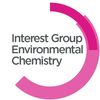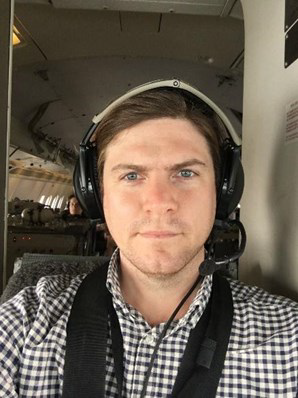Tomás Sherwen
ECG Bulletin July 2021
Tomás Sherwen is a Research Scientist at the National Centre of Atmospheric Science at the University of York.
What inspired you to become a scientist?
I have always loved being outdoors since my child-hood, growing up with my mum, who was a shepherd. The world around us captivates me. The further you dig into things, the more interesting – and complex – they become. This questioning and my drive to explore unknowns definitely moved me towards science.
What inspired you to become a scientist?
I have always loved being outdoors since my child-hood, growing up with my mum, who was a shepherd. The world around us captivates me. The further you dig into things, the more interesting – and complex – they become. This questioning and my drive to explore unknowns definitely moved me towards science.
|
How did you come to specialise in atmospheric chemistry?
I took a meandering route, gaining experience working in industry, non-profit, and re-search chemistry before choosing a PhD and then a job in atmospheric chemistry. My first proper taste of research was after winning a scholar-ship in green chemistry in my first undergraduate year. This, and internships in following summers, gave me an idea of what you could do with a degree in chemistry and an interest in environmental chemist-try. Atmospheric chemistry gave me a way to pair up a fondness for working with computers and data analysis with the big challenges that humans face. Could you describe your current job? I use numerical models to explore questions about the chemical composition of the atmosphere now, in the past, and going into the future. Most of my day-to-day work is spent wrangling and plotting data, exploring differences between models and observations, and working on problems with people all around the world. |
What advice would you give to anyone considering a career in environmental chemistry?
I’d focus on fundamentals first, then specify later. Experience of different sectors through internships/
placements helps you find out what you like (and don’t!).
What are some of the challenges facing the environmental chemistry community?
We are working out how to embrace new computing resources and techniques, using science to mitigate the global burden of pollution, and making sure science is translated broadly into impact, whilst counteracting the widespread (and some-times active) sources of disinformation. Addressing some of these challenges could have significant positive impacts.
What is the most rewarding aspect of your career so far?
It is definitely the people and the experiences. I’ve been lucky to work in the USA, growing my analytical data skills within a newly developing field of data science, and been a mission scientist guiding where a plane laden with scientific instruments flew off the west coast of Africa. I really enjoy how collaborative my area is, which has really emphasised that science takes many people and many steps to succeed in increasing our knowledge.
If you weren’t a scientist, what would you do?
I would be working on pro-jects linked to engineering; designing and building homes that allow people to live enjoyable, affordable, and sustainable lives. For years, I have been fascinated by how we can improve the way we live whilst reducing our impact on the environment. Through two personal renovation projects, I have learned that much of the technology and knowledge already exists and I’m keen to help others find this too.
And what do you do when you are not working?
I am generally not very good at staying still… and so I am likely to be found outside sailing, windsurfing, walking, or whatever new hobby I can find. The most recent new hobby I’ve found is ice-axe climbing, and I’m looking forward to my next trip!
I’d focus on fundamentals first, then specify later. Experience of different sectors through internships/
placements helps you find out what you like (and don’t!).
What are some of the challenges facing the environmental chemistry community?
We are working out how to embrace new computing resources and techniques, using science to mitigate the global burden of pollution, and making sure science is translated broadly into impact, whilst counteracting the widespread (and some-times active) sources of disinformation. Addressing some of these challenges could have significant positive impacts.
What is the most rewarding aspect of your career so far?
It is definitely the people and the experiences. I’ve been lucky to work in the USA, growing my analytical data skills within a newly developing field of data science, and been a mission scientist guiding where a plane laden with scientific instruments flew off the west coast of Africa. I really enjoy how collaborative my area is, which has really emphasised that science takes many people and many steps to succeed in increasing our knowledge.
If you weren’t a scientist, what would you do?
I would be working on pro-jects linked to engineering; designing and building homes that allow people to live enjoyable, affordable, and sustainable lives. For years, I have been fascinated by how we can improve the way we live whilst reducing our impact on the environment. Through two personal renovation projects, I have learned that much of the technology and knowledge already exists and I’m keen to help others find this too.
And what do you do when you are not working?
I am generally not very good at staying still… and so I am likely to be found outside sailing, windsurfing, walking, or whatever new hobby I can find. The most recent new hobby I’ve found is ice-axe climbing, and I’m looking forward to my next trip!


